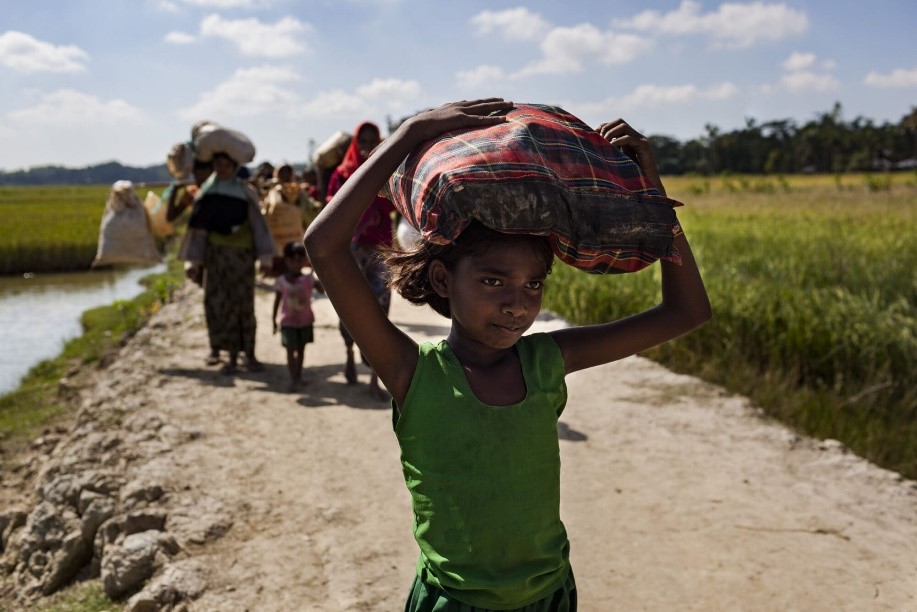
Context
At the end of 2022, conflict, violence, and crises displaced 43.3 million children, the highest number since the Second World War. This includes:
- 17.5 million refugee and asylum-seeking children
- 25.8 million internally displaced children
Millions of children are left behind when their parents migrate, yet reliable, age- and gender-specific data on their situations remain scarce. Many countries lack disaggregated data on migrant and refugee populations, leaving critical knowledge gaps in understanding the risks, challenges, and vulnerabilities these children face.
Without this data, policymakers and organisations cannot develop effective programmes to protect children on the move, ensure they can go to school, access healthcare, and live free from violence and exploitation.
Improving data
The International Data Alliance for Children on the Move (IDAC), funded by the European Union, addresses these critical gaps. IDAC is a unique global coalition working to improve data collection, analysis, sharing, and use for displaced and migrant children.
By strengthening national data systems, promoting innovation, and enhancing data visibility and usability, the project ensures children on the move are no longer invisible in the data, leading to better policies, programs, and outcomes.
This initiative contributes to global commitments, including:
- The 2030 Sustainable Development Agenda
- The United Nations Convention on the Rights of the Child (UNCRC)
- The Global Compact for Safe, Orderly and Regular Migration (GCM)
- The Global Compact on Refugees (GCR)
At the European level, the project aligns with key EU policies, including the 2020 Pact on Migration and Asylum and the 2022 Strategy on the Rights of the Child.
Objectives
The project’s overall objective is to strengthen the protection and promotion of the rights of children on the move by improving the availability, analysis, and use of child-specific data.
Better data means better outcomes for millions of displaced and migrant children. By closing data gaps, this project ensures:
- Children on the move can go to school and access education.
- Policies are in place to protect them from violence and exploitation.
- Programmes address their unique vulnerabilities, including gender-specific risks.
Through collaboration, innovation, and improved visibility, IDAC ensures children on the move are seen, heard, and supported. The project is more than just about data—it is about delivering hope and opportunity to the most vulnerable. By building stronger systems, forging partnerships, and sharing knowledge, IDAC sets a global example for how data can drive change.
Expected results
The project focuses on three main outcomes:
1. Strengthening national data systems and capacities
- Conduct assessments of national data systems to generate high-quality, sex- and age-disaggregated data.
- Deliver webinars, trainings, and capacity-building programmes for government agencies and partners at regional and cross-regional levels.
- Provide tools, guidelines, and resources to improve data collection and analysis.
2. Promoting collaborative and innovative approaches
- Expand IDAC’s membership by engaging new countries and partners.
- Foster innovation in child-specific data work by exploring new technologies and frontier data.
- Share good practices for data collection and analysis to improve migration and displacement responses.
3. Improving data visibility, availability, and use
- Organise high-level events, annual IDAC conferences, and expert consultations to share data, research, and global insights.
- Promote data visualisation and usability to ensure data informs policies and programmes.
- Establish mechanisms to include youth perspectives and engage them in shaping data initiatives.
Who is involved?
The project brings together key international partners to maximise expertise and impact:
- UNICEF: the main implementing partner and Chair of the IDAC Secretariat, overseeing project coordination.
- IOM (International Organization for Migration) and UNHCR (UN Refugee Agency): lead data assessments and capacity-building activities in three pilot countries each. They also facilitate IDAC’s annual conferences to bring global stakeholders together.
- IDAC members: a growing coalition of 25 Member States, 30 international organisations, civil society groups, and academic experts working to drive solutions in child-specific data.
- Project locations
- Global initiative including, KenyaIndonesiaNigeria
- Overall budget
- €4 000 000
- EU contribution
- €3 500 00087.5% of the overall budget
